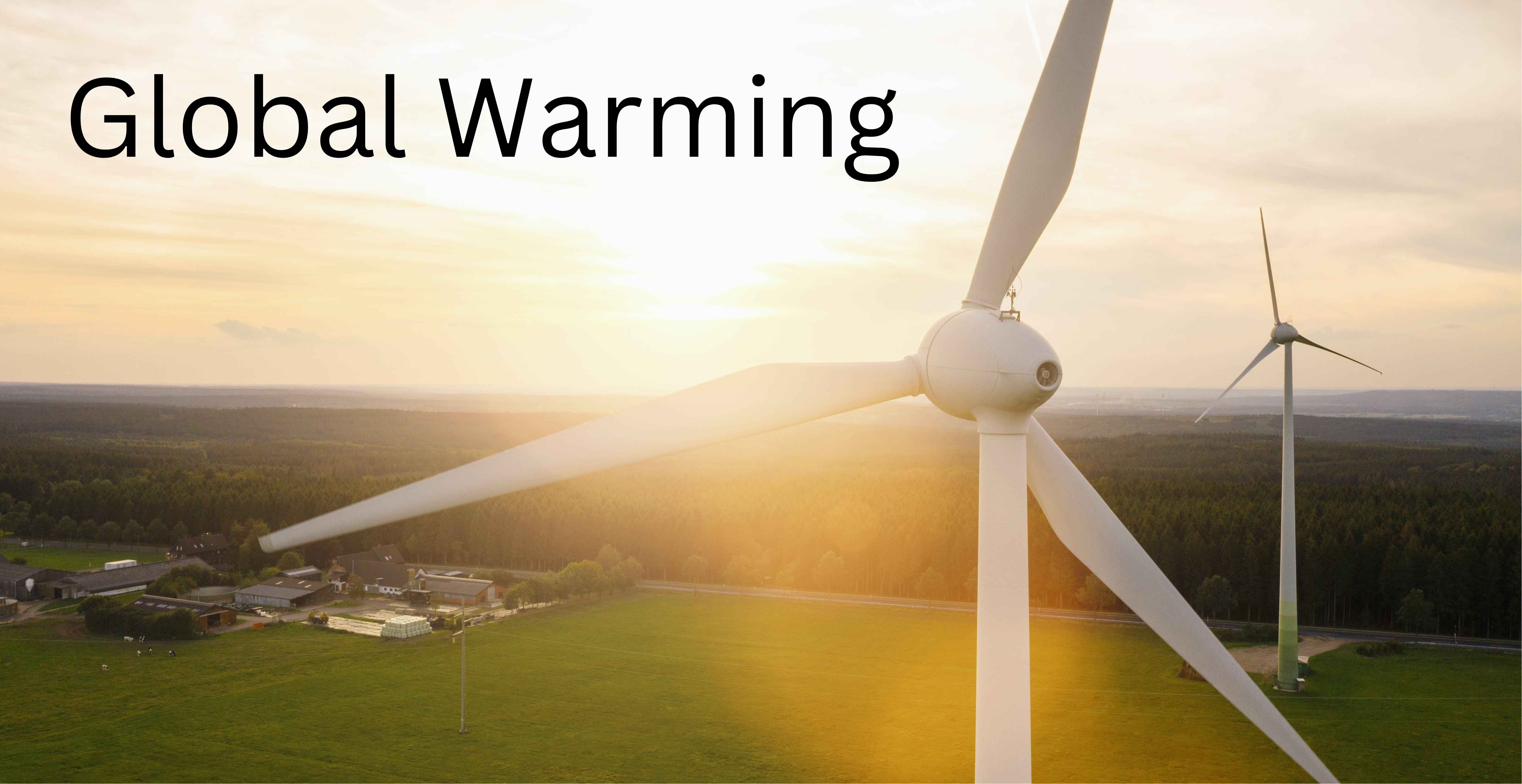Global Warming Effects on Today’s World
Published: 21 Sep 2023

Global warming, a phenomenon caused primarily by human activities, has become a pressing issue in today’s world. The increase in greenhouse gas emissions and the depletion of natural resources are leading to significant changes in the Earth’s climate.
In this article, we will explore the effects of global warming on the planet and discuss the urgent need for collective action to mitigate its impact.
Key Reason for Global Warming
The Earth’s climate has been changing over millennia, but the rapid warming observed in recent decades is a cause for concern. Global warming refers to the steady increase in the planet’s average temperature due to the accumulation of greenhouse gases in the atmosphere. The most prevalent of these gases include carbon dioxide (CO2), methane (CH4), nitrous oxide (N2O), and fluorinated gases. These gases trap heat from the sun, leading to a greenhouse effect that warms the Earth’s surface.
Understanding Global Warming
To comprehend the effects of global warming on today’s world, it is crucial to understand its underlying causes. As human activities, such as burning fossil fuels, deforestation, and industrial processes, release copious amounts of greenhouse gases into the atmosphere, they intensify the greenhouse effect. As a result, the Earth’s temperature is rising at an alarming rate.
The Impact of Global Warming on Today’s World:
Rising Temperatures
One of the most evident consequences of global warming is the rise in average temperatures worldwide. Heatwaves have become more frequent and intense, posing severe risks to human health and exacerbating existing environmental challenges.
Melting Ice and Rising Sea Levels
As temperatures rise, ice caps and glaciers are melting at an accelerated pace. This contributes to the rising sea levels, which threaten coastal communities and low-lying islands, leading to displacement and loss of habitat for numerous species.
Extreme Weather Events
Global warming intensifies extreme weather events, including hurricanes, droughts, floods, and wildfires. These events disrupt ecosystems, cause damage to infrastructure, and lead to loss of life and property.
Changes in Ecosystems
The delicate balance of ecosystems is disrupted due to global warming. Many plant and animal species struggle to adapt to the rapidly changing climate, leading to shifts in their distribution and potential extinction.
Threats to Biodiversity
The loss of habitat and changing climate conditions put immense pressure on the world’s biodiversity. Many species are at risk of extinction, leading to imbalances in ecosystems and affecting the overall health of the planet.
Human Contributions to Global Warming
Greenhouse Gas Emissions
The burning of fossil fuels for energy production and transportation is the largest source of greenhouse gas emissions. Transitioning to renewable energy sources is essential to reduce these emissions.
Deforestation
Large-scale deforestation for agriculture and urbanization leads to the release of stored carbon into the atmosphere. Preserving and restoring forests is crucial to mitigating global warming.
Industrialization
Industrial processes, such as manufacturing and mining, release significant amounts of greenhouse gases. Implementing cleaner technologies is necessary to minimize these emissions.
The Role of Renewable Energy
Transitioning to renewable energy sources, such as solar, wind, and hydroelectric power, is a vital step in reducing greenhouse gas emissions. Embracing sustainable practices and investing in green technology is essential to combat global warming.
Mitigation and Adaptation Strategies
International Agreements
Global cooperation is crucial to tackle the challenges posed by global warming. International agreements like the Paris Agreement aim to unite nations in their efforts to limit temperature rise and adapt to changing conditions.
Green Technology Innovations
Advancements in green technology, such as electric vehicles, energy-efficient appliances, and carbon capture systems, play a vital role in reducing human impact on the environment.
Individual Actions
Every individual can contribute to the fight against global warming. Simple actions like conserving energy, reducing waste, and supporting sustainable products can collectively make a significant difference.
The Importance of Public Awareness and Education
Raising awareness about the consequences of global warming is essential to inspire collective action. Education empowers individuals and communities to make informed decisions and advocate for climate-friendly policies.
Conclusion
Global warming is a defining challenge of our time. Its effects on today’s world are far-reaching, impacting the environment, wildlife, and human populations. Addressing global warming requires a comprehensive and concerted effort from governments, industries, and individuals worldwide. By adopting sustainable practices, investing in renewable energy, and fostering public awareness, we can mitigate the impact of global warming and create a healthier, more sustainable future for generations to come.
FAQs
1. Q: What is the primary cause of global warming?
A: The primary cause of global warming is the emission of greenhouse gases from human activities, particularly the burning of fossil fuels.
2. Q: How does global warming affect wildlife?
A: Global warming threatens wildlife by disrupting habitats, leading to species migration and potential extinction.
3. Q: Are there any positive effects of global warming?
A: While some regions may experience short-term benefits, such as longer growing seasons, the overall impact of global warming is detrimental to the planet and its ecosystems.
4. Q: What can individuals do to help combat global warming?
A: Individuals can reduce their carbon footprint by conserving energy, using public transportation, and supporting sustainable practices.
5. How can governments contribute to mitigating global warming?
A: Governments can implement policies that promote renewable energy, invest in green technologies, and participate in international agreements to address global warming.
| published by |
|---|
|
Rubeena Kanwal |

- Be Respectful
- Stay Relevant
- Stay Positive
- True Feedback
- Encourage Discussion
- Avoid Spamming
- No Fake News
- Don't Copy-Paste
- No Personal Attacks

- Be Respectful
- Stay Relevant
- Stay Positive
- True Feedback
- Encourage Discussion
- Avoid Spamming
- No Fake News
- Don't Copy-Paste
- No Personal Attacks




